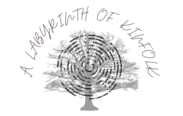It’s never too late to start your family history research! but I do suggest you start sooner rather than later so your family stories are not lost forever.
This will be a life project that will be so rewarding. Even though you will have days of frustration and days of pure joy, stick with it, as you uncover the journey of where you came from and who your family were!
The elated feeling of accomplishment will follow as you delve deeper into the lives of your Kinfolk and all their unknown stories you will bring to life.
Here are 7 of my tips to get you started.

1. Write it all down! As you begin to put your family tree together.

Writing down any information you know is a great place to start.
All those family stories you hear at Christmas or other family gatherings. The tales Grandma tells about Great Uncle Albert and Aunt Mary’s gossip about distant cousins, all come in handy as you are placing your ancestors in time.
Dig out any old bibles and birth, marriage, or death certificates to narrow down dates.
Start jotting all this down, either in a journal or on a research sheet. Beginning with those closest to you. Write down everyone’s Birthdays and any other details you know without the need to research.
2. Gather all your information and documents in one place.

Gathering all your information is necessary as it helps minimise double-up research. Nobody has the time to do it again.
Information such as dates, places of marriage, births, and deaths are a great place to start. Knowing where these events occurred will play an important part in your future research.
Here is a list of some details you could start with.
• Full name including Women’s Maiden names
• Date and Place of Birth and Baptism
• Date and Place of Marriages and Divorces
• Date and Place of Death and Burial
• List of Siblings and Children
Separate the above information you have gathered either into family groups or by surname you can change your organisation method as you build up your research documents, but this is a good starting point.
3. Read lots of books and watch videos.

Reading Family history books on learning the basics is the best way to build your knowledge on how to research. It’s unnecessary to read the entire book. Just gather the advice that will help you progress to the next step.
YouTube has some amazing presenters to help get you learning more. Follow your favourites so you can broaden your skills. The more you learn the feeling of overwhelm will soon fade. There is a list of my favourites under helpful links.
4. Family Interviews and reminiscing.

Gather those personal stories from the family. You don’t have to make it formal, just chat over a cup of tea or a family gathering. (spend time reminiscing). Just grab your journal or some Questionnaire prompt sheets and a cuppa and chat away.
Family members can be a wealth of knowledge. Speaking to your grandparents can open up a whole unknown world of information. They are the link to finding out about the unknown generations who have already passed on.
Don’t leave this part too late, as family doesn’t live forever and once they have passed, so have their stories.
5. Subscribe to blogs and social media sites for guidance.

There are some amazing blogs and social networking sites to follow or join online. There are entire communities on the web, and you can utilise these to help guide you through this researching frenzy.
Another option is to find a local genealogical society or family history event in your area. Attending classes about Family History Research, Records, and learning how to knock down brick walls is an important step to finding answers at all levels. You can follow my pages here.. https://www.facebook.com/ALabyrinthofKinfolk/ and https://www.instagram.com/alabyrinthofkinfolk
6. Plan your organisational system.

Keep everything in folders and adopt an order of information that works for you, remember it needs to be one you can maintain with ease.
Always check new findings and triple-check to ensure you’re entering information that is related to you. It’s essential to check names and dates against official records. You don’t want to file information that is not yours.
7. Jump in don’t wait!

Using all these tips, you won’t find it so overwhelming to just jump in and start, enjoy the process, and have fun learning about all your kinfolk.
You will soon have a feel for what way you prefer to organise your research. It is your research, do it your way, don’t be afraid to ask questions and it will all come together in its very own way as time progresses.
Don’t wait for the perfect day to start, as with each passing day, it’s a day shorter than you have to talk to your older relatives.

